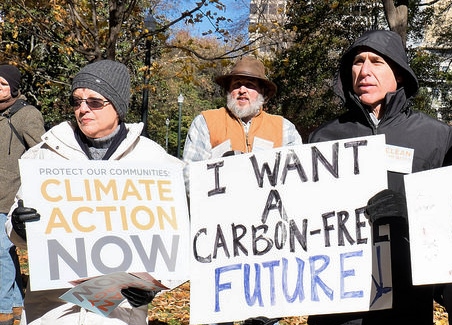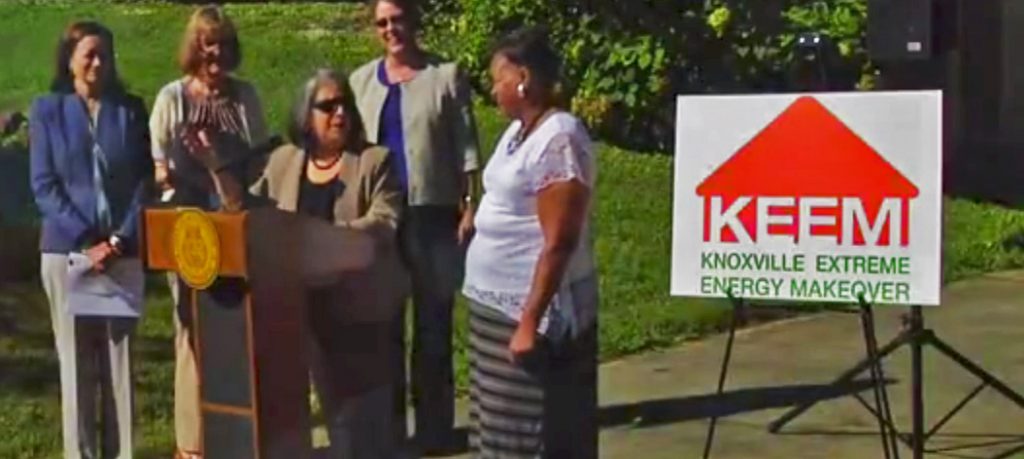Cleaning Up Coal Ash
For well over a century, power plants across the country have burned coal to generate electricity. And for just as long, leftover coal ash has been dumped in open, unlined pits near the power plant, usually located on a river or lake. Every year, U.S. power plants produce 130 million tons of coal ash, which is the second largest waste stream in the country after municipal garbage.
Coal ash concentrates the toxic heavy metals found in coal, including arsenic, mercury, lead and selenium. Stored in unlined, wet impoundments, coal ash has been leaking these toxics into our groundwater and surface waters for years. Sometimes these impoundments collapse — with disastrous results.
Yet government regulations for coal ash management are either non-existent or sparse, and there is little enforcement of the regulations that do exist. In North Carolina, this lack of oversight — and the complicity between state regulators, elected officials and Duke Energy — came to a boiling point in February 2014 when one of Duke’s coal ash impoundments spilled 39 million tons of ash into the Dan River.
Citizens living near North Carolina’s 33 coal ash impoundments — all of which have leaked — have fought for transparency from Duke and the state, and for cleanup of the pollution that threatens their property value, health and family. Their actions forced this issue into the headlines of news networks and to the forefront of environmental justice conversations in the United States.
Appalachian Voices stood with these communities as we worked for years to compel Duke Energy and the N.C. Department of Environmental Quality to excavate coal ash from all the North Carolina sites and dispose of it either in lined, dry landfills, away from waterways, or by recycling it for concrete or other uses, provided it’s done in a manner that protects public health and the environment.
On Jan. 2, 2020, North Carolina announced a historic settlement with one of the state’s most powerful corporations and polluters, Duke Energy. The settlement requires Duke to move nearly 80 million tons of toxic coal ash at six of its power plants to properly lined landfills onsite or recycle it.

Learn information about specific coal ash impoundments in the South, including health threats and safety ratings:
Additional Resources
Fact sheets, videos, links to academic research, and more
Sign Up to Act
Help us protect the health of our communities and waterways.
Latest News
Appalachian Rails Have Strong Ties to Fossil Fuels
By Elizabeth E. Payne For more than 100…
More KY Parks Certified as Monarch Waystations
Kentucky state parks work together to help protect the monarch butterfly.
Reaching for Virginia’s clean power potential
If Virginia takes a pragmatic approach to the Clean Power Plan, it can incentivize energy efficiency programs and drive growth in solar power — two ways to ensure a more secure grid and shrink bills for electric customers. But there are possible pitfalls too. That’s why it’s critical for Virginians to engage throughout the process, pressing state officials to advance a vision of safe, affordable and reliable energy.
Pedal in the Mountains
Bicycle tourism is gaining in popularity, and initiatives across the Appalachian region are making it easier for people to explore the area by bike.
Thank God for our Kentucky newspapers
Local newspapers in Kentucky have helped expose state regulators’ lax treatment of industry, most recently in the form of a secretive deal stuck with an oil company responsible for polluting drinking water supplies. But sadly, Kentucky’s politicians and agencies aren’t shy in revealing whose interests they truly serve either.
Weatherizing Tennessee homes gets results
TVA is delivering millions of dollars in grants to communities in East Tennessee to start programs to help families weatherize their homes so they can stay warmer in the winter and cooler in the summer while saving money on their electric bill. People like Dorothy Ware of Knoxville.










